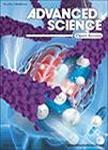版权所有:内蒙古大学图书馆 技术提供:维普资讯• 智图
内蒙古自治区呼和浩特市赛罕区大学西街235号 邮编: 010021

作者机构:Shanghai Jiao Tong Univ Shanghai Mental Hlth Ctr Sch Med Sch Biomed Engn Shanghai 200230 Peoples R China Shanghai Key Lab Psychot Disorders Shanghai 200230 Peoples R China Minist Educ Engn Res Ctr Digital Med Shanghai 200230 Peoples R China
出 版 物:《ADVANCED SCIENCE》 (Adv. Sci.)
年 卷 期:2025年第12卷第11期
页 面:e2413571页
核心收录:
基 金:STI 2030-Major Projects [2022ZD0209100] STI [YG2022ZD026, 23X010302269] Medical-Engineering Cross Foundation of Shanghai Jiao Tong University
主 题:deep learning DNA methylation non-coding mutations single-cell resolution SNP-CpG interactions
摘 要:DNA methylation plays a critical role in gene regulation, affecting cellular differentiation and disease progression, particularly in non-coding regions. However, predicting the epigenetic consequences of non-coding mutations at single-cell resolution remains a challenge. Existing tools have limited prediction capacity and struggle to capture dynamic, cell-type-specific regulatory changes that are crucial for understanding disease mechanisms. Here, Methven, a deep learning framework designed is presented to predict the effects of non-coding mutations on DNA methylation at single-cell resolution. Methven integrates DNA sequence with single-cell ATAC-seq data and models SNP-CpG interactions over 100 kbp genomic distances. By using a divide-and-conquer approach, Methven accurately predicts both short- and long-range regulatory interactions and leverages the pre-trained DNA language model for enhanced precision in classification and regression tasks. Methven outperforms existing methods and demonstrates robust generalizability to monocyte datasets. Importantly, it identifies CpG sites associated with rheumatoid arthritis, revealing key pathways involved in immune regulation and disease progression. Methven s ability to detect progressive epigenetic changes provides crucial insights into gene regulation in complex diseases. These findings demonstrate Methven s potential as a powerful tool for basic research and clinical applications, advancing this understanding of non-coding mutations and their role in disease, while offering new opportunities for personalized medicine.